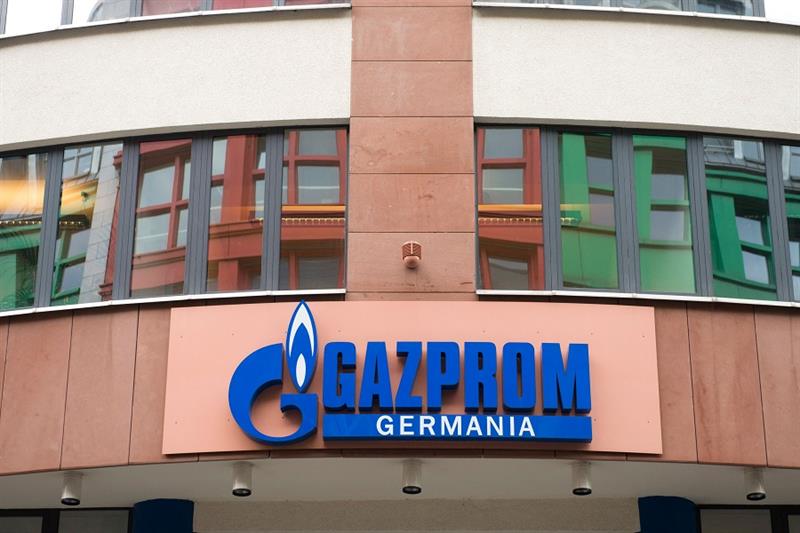
View of the building housing the Russian gas giant German branch Gazprom Germania headquarters in Berlin, on March 17, 2014. AFP
The European Commission said its teams carried out unannounced inspections on Tuesday "at the premises of several companies in Germany active in the supply, transmission, and storage of natural gas".
Two sources familiar with the matter said that the main target of the operation was Gazprom, which is accused of sparking an energy crunch in the European Union.
According to a report by Bloomberg, officials visited offices of companies that included the giant Gazprom Germania GmbH and Wingas GmbH, which supply about 20 percent of the German market.
The commission, the EU's powerful antitrust authority, is looking into allegations that Gazprom squeezed its European clients by limiting supply, causing prices to skyrocket.
Ukraine in December filed a complaint to the EU against Gazprom, accusing it of creating "an artificial deficit of gas" to jack up prices.
"Gazprom's actions are anti-competitive and have significant negative consequences for all European consumers," Yuriy Vitrenko, head of Ukraine's state energy company Naftogaz, said at the time.
Gazprom has a powerful hand over the EU, with Russia providing roughly 40 percent of its gas supply, mainly to Germany, Italy, and a few eastern European countries.
The gas flow to the EU has become an object of discord in the war in Ukraine, with Kyiv urging the EU to cut off Russian supply to punish the Kremlin for its invasion.
Led by Germany, the EU has refrained from slapping Moscow with an embargo, fearing disruptions to the European economy, especially to factories that would risk short-term closure if the supply were to stop suddenly.
Germany and Austria on Wednesday raised their alert levels under emergency gas plans over fears that Russia could sever supplies.
Given the tensions, the European Union has announced plans to slash its imports of Russian gas by two-thirds this year.
The invasion of Ukraine, launched by Moscow on February 24, initially caused the spot price of gas to reach an all-time high, peaking at 345 euros per megawatt-hour.
It has since fallen back and stood at 125 euros on March 31, compared with less than 50 euros at the same time last year.
Short link: